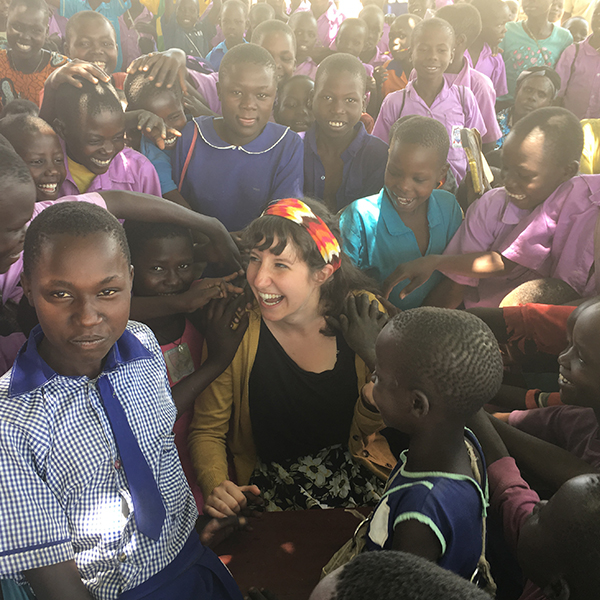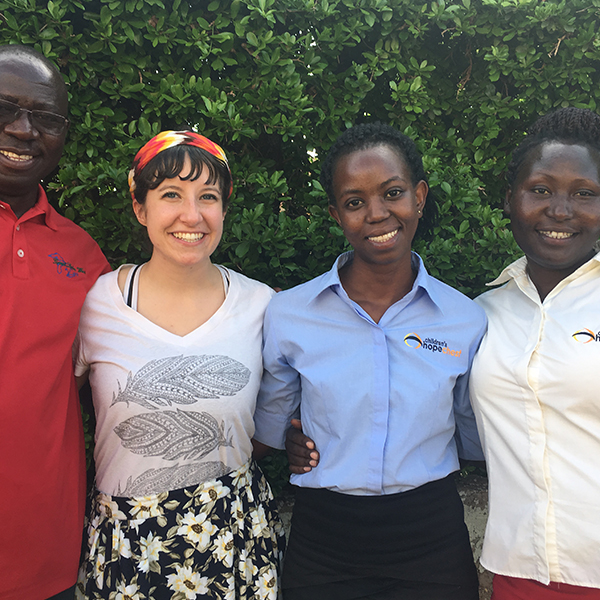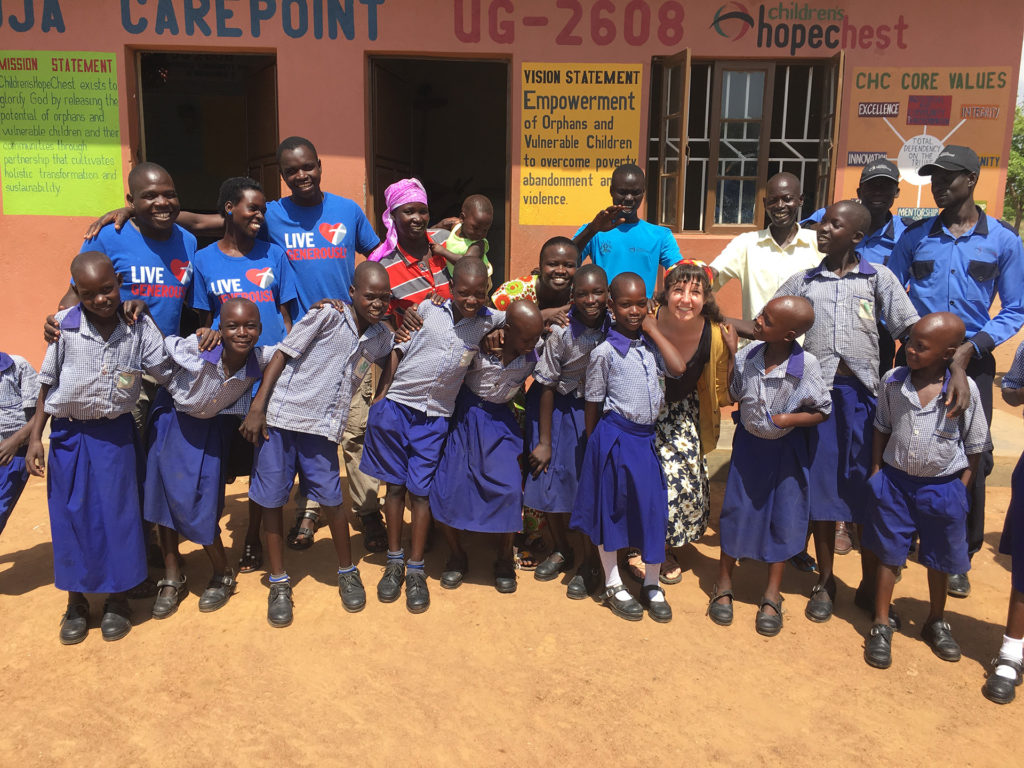“In this crazy world, there’s an enormous distinction between good times and bad, between sorrow and joy. But in the eyes of God, they’re never separated. Where there is pain, there is healing. Where there is mourning, there is dancing. Where there is poverty, there is the kingdom . . . We are sent to wherever there is poverty, loneliness, and suffering to have the courage to be with people. Trust that by throwing yourself into that place of pain you will find the joy of Jesus.”
– Henri Nouwen
Although I work for an organization with the word “Hope” in the title, I find myself, like many others, at times discouraged and overwhelmed with the amount of suffering in our world. We are inundated on a daily basis with the plights in our communities, in our country, and around the globe – yet there is a point when our capacity to care about these realities exceeds its limit. We remain in our spaces of relative comfort and ease with a near-hopeless outlook – asking ourselves when this world will become better, or even asking the question when Christ will return and bring wholeness and restoration to all of the brokenness we see.
Perhaps part of the reason we ask these questions repeatedly is because we have not learned how to cultivate hope in the face of seemingly impossible circumstances. As a child, I was not forced to walk miles for water; I was not faced with the decision of supporting my family or attending school; nor was I left with the sole responsibility of caring for my younger siblings. Yet, these are the realities that children around the world experience every day. With these realities of fighting for survival, they do not have the privilege to ask questions about the brokenness of the world while living in comfort; they simply must fight to live.
I recently had the opportunity to travel to Uganda with Children’s HopeChest and visit each of the communities where we are currently working. My first time to Uganda, I was overwhelmed with the spirit of hospitality, joy, and hopefulness that I encountered – emanating from the songs, dances, laughter, and smiles of everyone I met – individuals I now consider friends. It was evident that this hope was deeply rooted, and I realized that it is something I want to have too.

This hopefulness met me in the stories of impact in these communities and the stories of children in our program – some of whom have been neglected and abandoned by the rest of their society. After a dusty drive to the Nyada CarePoint, I sat in the CarePoint office and witnessed the project coordinator begin a counseling curriculum with three adolescent children. One, named Joseph, shared his story of hardship when his father passed away suddenly and he knew he wasn’t going to be able to attend school, since his mother would not be able to afford his school fees. For months, he prayed that God would give him the opportunity to attend school. When HopeChest began to partner in his village and he became a part of the program, he learned that HopeChest was going to help his family pay for his school fees, scholastic materials, and uniform. He now has the opportunity to have an education and grow to become self-sufficient.

One picture of hope that will forever remain in my mind is the community members at the Wera CarePoint sharing with me their dreams for the future of their community. Already with a successful tailoring school, microfinance groups, and a Peanut Butter House started through the help of partner relationships, the CarePoint staff has fought to have a positive reputation in their community and make a lasting impact. The CarePoint leadership relayed to me how they actually sit on various school boards, ensuring that the schools in the community know their commitment to their children’s education and success. This goes hand-in-hand with their dream of building a resource center on the CarePoint property to make books and computers accessible to children and their families, while also keeping the goal of self-sustainability at the forefront of their minds and spirits.
Stories of hope were all around me, and they were not created out of a vacuum. Rather, they were born and cultivated in seemingly dire circumstances, in places that may appear God-forsaken, because of the trust and belief that there is always an opportunity for a better tomorrow.
Coming back to Colorado, I am filled with hope because I have seen how God is continually working through hope-filled people in Uganda to bring individuals, families, and communities to the realization of their dignity and potential. I now have the opportunity to facilitate the relationship between church partners and CarePoints in Uganda, believing that hope will continue to take root, grow, and produce fruit through these Kingdom relationships.
I pray that we may have the strength to reject the apathy, hopelessness, and cynicism that can permeate our culture – and that, like our brothers and sisters in Uganda, we may be “filled with all joy and peace as we trust in Him, so that we may overflow with hope by the power of the Holy Spirit” (Romans 15:13).





